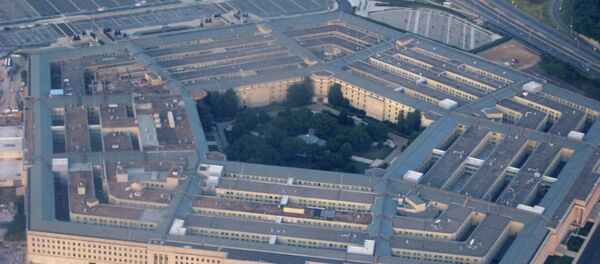This includes the decision to "aggressively intervene in the case of Libya, destroying the sovereign, independent and nationalist government there, which gave rise to all kinds of violent extremist organizations including now Islamic State. It also includes "the fomenting of a foreign-funded and foreign-armed civil war in Syria, which likewise contributed to the same phenomenon." Finally, it includes "US efforts in Ukraine, which deliberately and consciously toppled a democratically elected government," leading to a coup d'état led by ultranationalist forces which "overthrew that government, and then created a new regime in Ukraine which announced that its top priority was to take the country into NATO, thus bringing NATO right to Russia's border and destabilizing the entire region."
Becker noted that it is highly hypocritical of the new strategy to accuse Russia of breaking the rules of international law when the Washington itself "consciously overthrows governments which are technically at peace with [the US]," including Iraq in 2003, in Libya in 2011 and now Syria.
Moreover, as far as Moscow's actions are concerned, Becker argued that "Russia is confronting a problem of NATO expansion in Eastern and Central Europe," following the West's failure to comply with agreements reached with Russia following the collapse of the Soviet Union. The activist noted that following their absorption by the defense organization, the countries of Eastern Europe are now being openly used "to carry out large scale military exercises, including the introduction of heavy weapons on Russia's borders, which could not be perceived to be anything other than a threat to Russia's national interests."
"At the very moment that the United States is attempting to secure [agreement with Tehran], the Pentagon's military doctrine says that Iran's nuclear program is a palpable and real threat to the region and to the world, while US negotiators in Geneva acknowledge that there is no nuclear weapons program."
"Within the next few years, the United States will have the greater part of its navy and air force in the Pacific region. At the same time, the US is assembling a network of countries in the region and forging a military and political alliance with them, which is clearly targeting China. [An analysis of] the deeds rather than the words demonstrates that the United States does not welcome the peaceful rise of China, and in fact feels threatened by its rise."
Becker noted that this is the case "not because China (and I would say the same with Russia) threatens the American homeland or American security, but because Russia and China threaten the strategy of the United States which is to maintain unipolar hegemony…Their rise and the reassertion of their own national interests collides with the US strategy of hegemony and domination."
Finally, commenting on the rise of ISIL, the peace activist noted that US intervention in Iraq, followed by the funding of Shia, Sunni and Kurdish militias "created the space for the so-called Islamic State," with the decision to "bomb into oblivion the Libyan government allow[ing] Islamic State to rise there."
Becker explained that as long as the US continues to resist aligning itself with the government of Bashar Assad, "the one military force in Syria that has consistently fought against violent extremist organizations like ISIL," he will have doubts over Washington's sincerity in stating that the "destruction, degradation and elimination of ISIL [is] their top priority." In his view, if it was, "they would be partnering with the Assad government right now."






